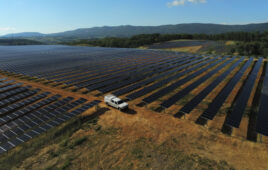By Emily Folk, freelance writer
Iowa House Study Bill 185 may endanger the solar industry in Iowa with the introduction of new fees. Those who want to invest in a solar panel installation for their roofs may have to pay additional costs if the bill passes. A yearly “sunshine tax” would appear on their electric bills alongside the standard charges.
Clean energy advocates believe this “sunshine tax” will compromise the solar industry in Iowa. Some have even gone as far to say the new legislation will “decimate the future of distributed solar” in the state, a claim which isn’t entirely unfounded. Even with these risks, proponents of the bill say it’s necessary.
Local utility MidAmerican Energy Company has backed the new legislation, stating it’s an issue of customer fairness. Since non-solar customers are paying to use the electric grid, solar energy customers should pay to use the grid as well. That said, the subject isn’t as black and white as some might think, given the situation.
The argument from MidAmerican Energy
According to MidAmerican Energy, the average residential customer pays $328 in annual grid connection fees. Customers with rooftop solar installations pay lower grid connection fees or none at all. House Study Bill 185 seeks to rectify an issue with cost-shifting. Concerning the inconsistency, a spokeswoman for MidAmerican Energy said, “We support customers having private generation, but not the cost-shift that’s created when they don’t pay for their use of the grid.”
Despite the statement from MidAmerican Energy, the subject of cost-shifting is somewhat speculative. Researchers have disproven cost-shifting in states which have examined the value of distributed solar on the grid, and, as of yet, no studies have confirmed or denied a cost-shift in Iowa.
The argument from clean energy advocates
As mentioned earlier, clean energy advocates believe the “sunshine tax” will compromise the solar industry in Iowa. Potential customers who would have otherwise purchased a solar panel installation for their home might view the new legislation and reconsider their decision to invest.
The legislation itself is more complicated than the simple designation of a “sunshine tax” might imply. Beyond a basic charge, it would eliminate the state’s net-metering policy, providing one of four different options as a substitute for new solar customers instead. These options include the following:
- Minimum fee: Customers continue with traditional net metering but pay a minimum flat fee if their utility bills drop below a certain amount.
- Demand fee: Customers also pay a demand fee tied to their peak power consumption, in addition to energy use charges and fixed fees.
- Cost of service: Customers pay an unspecified rate that allows the utility to cover the cost of providing service.
- Buy all, sell all: Customers pay the 10 cents per kWh retail rate for their power, receiving payment of about 2.5 cents per kWh for power generated.
Clean energy advocates claim the above options are all undesirable, regardless of the solar customer’s situation. They may have a choice in how they substitute the original policy, but none of the alternatives are appealing. The bill is ultimately damaging to Iowa’s solar market.
The future of solar energy in Iowa
House Bill 185 is a polarizing piece of legislation. The proposed bill is the subject of stern opposition from clean energy advocates who claim it “monopolizes the sun.” On the opposite side of the argument, MidAmerican Energy believes it’s an issue of customer fairness, that the bill amends a problem.
As for the eventual conclusion of the conflict, those interested in House Bill 185 should follow the situation as it unfolds.
Emily Folk is a freelance writer covering topics in renewable energy, manufacturing and green technology. You can read more of her work on her blog Conservation Folks.




Tell Us What You Think!